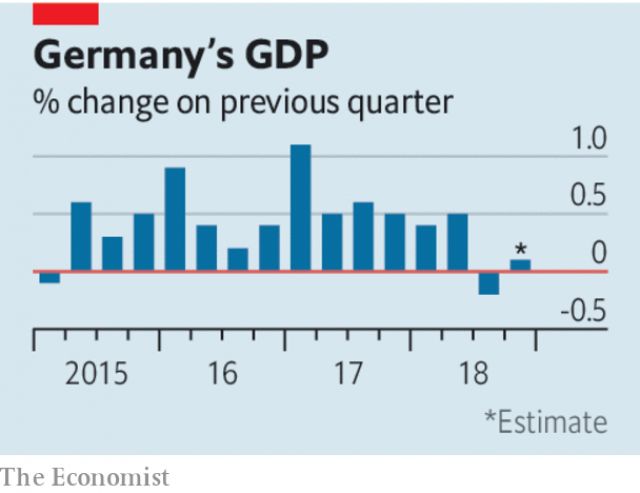- 七、SpringCloud 项目迁移至 K8s
退役小学生呀
K8s企业级深度研修kuberneteslinux容器云原生k8s
七、SpringCloud项目迁移至K8s文章目录七、SpringCloud项目迁移至K8s1、环境准备1.1集群规划1.2SpringCloud项目架构及迁移需求分析2、迁移Eureka集群2.1构建及容器化2.2部署至K8s2.3创建通信Service3、迁移网关服务3.1构建及容器化3.2部署至K8s3.3创建Service3.4创建Ingress4、迁移其他springboot服务4.1构
- 九、K8s污点和容忍
退役小学生呀
K8s企业级深度研修kubernetesdocker容器云原生k8slinux运维
九、K8s污点和容忍文章目录九、K8s污点和容忍1、污点(Taint)和容忍(Toleration)1.1什么是污点(Taint)?1.2什么是容忍(Toleration)?1.3污点的影响效果(Effect)1.4污点配置解析1.5常见内置污点2、污点的增删改查2.1添加污点2.2修改污点2.3查询污点2.4删除污点3、污点和容忍使用场景实战3.1K8s主节点禁止调度3.2K8s新节点禁止调度3
- 容器基础5-Helm 与 K8s 的关系
旗浩QH
Android系统虚拟化kubernetes容器云原生
一、Helm是什么?为什么需要它?K8s是强大的容器编排平台,但部署复杂应用时(如包含Web服务、数据库、缓存等多个组件的系统),需要编写大量YAML文件,管理成本高。Helm就是为简化K8s应用部署而生的工具,它被称为“K8s的包管理器”,类似Ubuntu的apt或Mac的brew。二、Helm如何工作?核心概念解析Chart(图表)Helm的基本单位,是一组YAML文件的集合,描述了一个或多个
- ThinkPHP中的日志通道配置
深山技术宅
PHP经验ThinkPHPphp后端日志
在ThinkPHP中配置日志通道主要通过config/log.php文件实现。以下是详细配置说明和示例:1.基础配置结构//config/log.phpreturn['default'=>'file',//默认使用的通道'channels'=>[//通道1:文件日志(默认)'file'=>['type'=>'file','path'=>runtime_path('log'),'level'=>['
- 正则表达式
咸鱼时日翻身
正则表达式
是指定一组与之匹配的字符串,限定符号a*a出现0或者多次a+a出现1次或者多次a?a出现0次或者1次a{2,5}出现在2到5次之间或运算法(cat|dog)匹配cat或者dog字符类[abz]+表示匹配的字符只能是中括号中的字母如果使用了^则为取反符号元字符、/d代表数字字符/w代表英文字符数字加上下划线/s代表tab和换行符其中/加大写的DWS则表示取反符号.表示任意字符不包括换行符号^a匹配行
- 开源 vGPU 方案 HAMi: core&memory 隔离测试
探索云原生
AIkubernetes容器云原生gpu算力人工智能开源
本文主要对开源的vGPU方案HAMi的GPUCore&Memory隔离功能进行测试。省流:HAMivGPU方案提供的Core&Memory隔离基本符合预期:Core隔离:Pod能使用的算力会围绕设定值波动,但是一段时间内平均下来和申请的gpucores基本一致Memory隔离:Pod中申请的GPU内存超过设定值时会直接提示CUDAOOM1.环境准备简单说一下测试环境GPU:A40*2K8s:v1.
- SQLserver中的日期时间
就是有点傻
SQLserversql
在SQLServer中,日期和时间数据类型用于存储日期和时间信息。这些数据类型包括DATE、TIME、DATETIME、DATETIME2和DATETIMEOFFSET。每种类型都有其特定的用途和存储格式。1.DATE用途:用于存储日期信息,格式为YYYY-MM-DD。存储大小:3字节。范围:0001-01-01到9999-12-31。2.TIME用途:用于存储时间信息,不包含日期部分。存储大小:
- 【算法刷题记录(简单题)002】字符串字符匹配(java代码实现)
挺菜的
java算法开发语言
一、题目描述对于给定的字符串s和t,检查s中的所有字符是否都在t中出现。(一)输入描述第一行输入一个长度为1≤len(s)≤200、仅由小写字母组成的字符串s。第二行输入一个长度为1≤len(t)≤200、仅由小写字母组成的字符串t。(二)输出描述如果s中的所有字符都在t中出现,则输出true,否则输出false。(三)示例输入:bcabc输出:true二、题目解答(一)解题思路1.使用HashM
- c++求同构数
*Allen*
c++算法数据结构
题目描述所谓同构数是指这样的数,即它出现在它的平方数的右端。例如,5的平方是25(即5×5=25),5是25右端的数,那么5就是同构数。又如,25的平方是625(即25×25=625),同理25也是同构数。找出通过键盘输入的两个正整数N和M(0usingnamespacestd;intn,m,t,s,a[100],b[100],sum,s1,s2,k;intmain(){cin>>n>>m;for
- 恶搞锁屏软件
梦遇苏喂
软件工程安全
这是一个打包好的锁屏程序适用于恶搞同学老师密码在软件里使用此软件使电脑发生任何问题与作者无关!!!!!下载链接-百度https://pan.baidu.com/s/16DiF-Fv8us-lBSZgh6-W-A?pwd=awer下载链接-迅雷https://pan.xunlei.com/s/VOUZN96XqftxLLdlNjbtnmX-A1?pwd=fm4a
- WebService SendTimeout 超时问题
SKY徐
webservicebindingbehaviorsecuritywcf.net
System.TimeoutException:请求通道在等待00:01:00以后答复时超时。增加传递给请求调用的超时值,或者增加绑定上的SendTimeout值。分配给此操作的时间可能是更长超时的一部分。WCF中解决方案:1)首先保证客户端每次建立的连接在使用完成后进行关闭.即调用Close()方法,否则此连接会在设置的会话(一般为10分钟)后才自动关闭.期间任何客户端也无法使用此服务.2)如果
- Python——pyautogui打地鼠游戏自动化脚本(基于图片定位)
以4399小游戏为例:4399游戏网importpyautoguiimportkeyboardimporttimeimportrandomimportloggingfromPILimportImageGrabimportos#配置日志logging.basicConfig(level=logging.INFO,format='%(asctime)s-%(levelname)s-%(message)
- resttemplate默认超时时间_使用微软数据通信框架WCF:客户端调用服务超时分析
weixin_39665302
服务端设置超时时间
首先给出对调用超时的分析和解决办法,然后在给出完整和应用代码。1客户端调用超时运行客户端,执行调用ServiceProxyproxy=newServiceProxy();strings=proxy.GetData(1);通过配置sendTimeout参数设定超时时间,超时时间默认为1分钟,上述配置中采用了默认超时时间。InnerExceptionMessage请求通道在等待00:00:59.946
- WebService SendTimeout 超时
weixin_30827565
System.TimeoutException:请求通道在等待00:01:00以后答复时超时。增加传递给请求调用的超时值,或者增加绑定上的SendTimeout值。分配给此操作的时间可能是更长超时的一部分。WCF中解决方案:1)首先保证客户端每次建立的连接在使用完成后进行关闭.即调用Close()方法,否则此连接会在设置的会话(一般为10分钟)后才自动关闭.期间任何客户端也无法使用此服务.2)如果
- IEEE 1588与802.1AS同步的结果差别
路边闲人2
物联网ptp4l802.1AS
ptp4l采用的协议不同的时候,输出的结果也是不同的。ptp4l默认采用IEEE1588协议进行时钟同步:用ptp4l默认的同步结果是这样的:root@dell:/home/ppl/sbs#ptp4l-ieno1-m-s-2ptp4l[1876840.874]:selected/dev/ptp0asPTPclockptp4l[1876840.915]:port1:INITIALIZINGtoLIS
- HTTP 请求已超过分配的超时。为此操作分配的时间可能是较长超时的一部分
SilverLight调用WEBSERVICE时对HTTP请求已超过分配的超时。为此操作分配的时间可能是较长超时的一部分。解决方案:在SilverLight的ServiceReferences.ClientConfig中对超时进行设置。openTimeout="00:10:00"receiveTimeout="00:10:00"sendTimeout="00:10:00"closeTimeout=
- PTP 与 gPTP 的对比解析
ftdlk
人形机器人机器人自动驾驶
PTP与gPTP的对比解析PTP(PrecisionTimeProtocol)和gPTP(generalizedPrecisionTimeProtocol)均为高精度时间同步协议,但设计目标、应用场景及技术实现存在显著差异。以下是两者的核心区别:1.协议标准与目标特性PTP(IEEE1588)gPTP(IEEE802.1AS)标准版本IEEE1588-2008(主流)/IEEE1588-2019I
- 推荐与广告区别
ActionReaction
TheDifferencebetweenaRecommendationandanAdAquickthoughtregardingFacebook’snewSocialAdsplatform.Arecommendationissomethingyougetfromsomeonewhoknowssomethingaboutyou.Theyhaveseenanitemofinterestandthoug
- 详解MySQL查看执行慢的SQL语句(慢查询)
java_key_code
MySQL数据库mysqlsql数据库
慢查询日志查看执行慢的SQL语句,需要先开启慢查询日志。MySQL的慢查询日志,记录在MySQL中响应时间超过阀值的语句(具体指运行时间超过long_query_time值的SQL。long_query_time的默认值为10,意思是运行10秒以上(不含10秒)的语句)。目的:发现执行时间特别长的SQL查询,进行优化。默认情况下,MySQL数据库没有开启慢查询日志,需要我们手动来设置这个参数。慢日
- ESP32-S3开发板麦克风录音到SD卡存储测试
xu_wenming
mcu嵌入式硬件物联网
硬件版本:ESP32-S3-EYE-MB_V2.2软件版本:esp-idf-v5.4.1实测ESP的DEMO,无法正常运行。测试修改验证:实现麦克风录音到SD卡存储。#include#include#include#include#include#include"esp_log.h"#include"esp_err.h"#include"esp_system.h"#include"esp_vfs_
- 善用关系网络:开源AI大模型、AI智能名片与S2B2C商城小程序赋能下的成功新路径
摘要:本文聚焦于关系在个人成功中的关键作用,指出关系即财富,善用关系、拓展人脉是成功的重要途径。在此基础上,引入开源AI大模型、AI智能名片以及S2B2C商城小程序等新兴技术工具,探讨它们如何助力个体在复杂的关系网络中更高效地挖掘和利用资源,提升处理关系的能力,从而为事业成功开拓新道路,揭示这些技术元素在当代成功路径中的创新应用与重要意义。关键词:关系网络;开源AI大模型;AI智能名片;S2B2C
- ESP32-S3驱动RGB屏幕显示飘移问题
为什么驱动RGBLCD屏幕时出现偏移(显示画面整体漂移)?原因PCLK设置过高,PSRAM带宽跟不上。Listitem受写flash操作影响,期间PSRAM被禁用。配置方面提高PSRAM和flash带宽,设置flash为QIO120M,PSRAM为Octal120M。开启CONFIG_COMPILER_OPTIMIZATION_PERF。降低data_cache_line_size到32Byte。
- 传统微商困境与开源链动2+1模式、AI智能名片及S2B2C商城小程序的转型破局
说私域
开源人工智能小程序
摘要:本文聚焦传统微商代理分级模式面临的库存积压、出货困难等“滚雪球”危机,深入剖析其根源。在此基础上,引入开源链动2+1模式、AI智能名片以及S2B2C商城小程序,探讨这些新兴元素如何助力品牌微商实现转型,突破传统困境,实现可持续发展。通过分析各元素的特点与优势,阐述它们在优化供应链、提升营销效率、增强客户关系管理等方面的协同作用,为微商行业的创新发展提供理论支持与实践参考。关键词:传统微商;开
- sentinel 微服务流量治理工具,使用初步
RR1335
微服务Gateway#Springsentinel微服务架构
官网入口introduction|Sentinel这是阿里巴巴的服务,中文支持很好maven配置入口https://mvnrepository.com/artifact/com.alibaba.csp/sentinel-corecom.alibaba.cspsentinel-core1.8.6sentinel控制台需要引入的依赖com.alibaba.cspsentinel-transport-s
- Prometheus系列01-Prometheus的单机版二进制部署
tinychen777
Devopslinux监控程序centos
作为CNCF中最成功的开源项目之一,Prometheus已经成为了云原生监控的代名词,被广泛应用在Kubernetes和OpenShift等项目中,同时有很多第三方解决方案也会集成Prometheus。随着Kubernetes在容器调度和管理上确定领头羊的地位,Prometheus也成为Kubernetes容器监控的标配。考虑到k8s系统的复杂性和上手难度较高,本文将从最简单最基础的部分开始循序渐
- Java解决同构字符串问题
宣布无人罪
力扣面试题java开发语言
Java解决同构字符串问题01题目给定两个字符串s和t,判断它们是否是同构的。如果s中的字符可以按某种映射关系替换得到t,那么这两个字符串是同构的。每个出现的字符都应当映射到另一个字符,同时不改变字符的顺序。不同字符不能映射到同一个字符上,相同字符只能映射到同一个字符上,字符可以映射到自己本身。示例1:输入:s="egg",t="add"输出:true示例2:输入:s="foo",t="bar"输
- ShaderGraph节点解析(124):绕轴旋转节点(Rotate About Axis Node)详解
小李也疯狂
#unityShaderGraphUnity
目录一、节点功能概述二、端口详解控制选项三、技术原理解析3.1数学基础:罗德里格斯旋转公式3.2旋转矩阵构造3.3生成代码解析1.弧度模式(Radians)2.度模式(Degrees)3.4旋转方向:右手定则四、应用场景与实战案例4.1角色骨骼旋转(动画驱动)场景:实现角色手臂绕肱骨(上臂骨)旋转,模拟弯曲动作4.2相机环绕效果(第三人称视角)场景:让相机绕目标物体(如角色)的Y轴旋转,实现环绕观
- 【Python】simulink与python联合仿真
1.1Simulink的边界:事件驱动、算法复杂性与AI集成瓶颈Simulink的核心优势在于其强大的微分方程求解器和对连续时间系统、离散时间系统的精确描述能力。其基于“信号流”和“框图”的建模范式,使得工程师可以直观地构建与物理现实高度对应的数学模型。然而,这种优势也带来了其天然的局限性:基于时间的驱动核心(Time-BasedCoreEngine):Simulink的“心脏”是一个时间驱动的仿
- spyder汉化方法
spyder汉化方法:1、下载安装好Anaconda3;在此强调请安装Anaconda3,如果是anaconda2,汉化可能会遇到出错或者乱码问题。2、spyder的版本至少在3.x以上。(查看方法:打开spyder—help—AboutSpyder)3、尽量升级Spyder到最新版本。方法:(前提是你在Anaconda环境下)cmd-----condaupdatespyder-----若不是最新
- 形式语言与自动机基础
莫彩
自然语言理解算法程序员的玩具学习
基本概念形式语法形式语法是一个4元组G=(N,Σ\SigmaΣP,S),其中:N是非终结符的有限集合(有时也叫变量集或句法种类集);Σ\SigmaΣ是终结符的有限集合,Σ\SigmaΣ和N的交集为空且Σ\SigmaΣ和N的并集;称总词汇表;P是一组重写规则的有限集合:P={α→β\alpha\rightarrow\betaα→β},其中,α\alphaα和β\betaβ是V中元素构成的串,但α\a
- eclipse maven
IXHONG
eclipse
eclipse中使用maven插件的时候,运行run as maven build的时候报错
-Dmaven.multiModuleProjectDirectory system propery is not set. Check $M2_HOME environment variable and mvn script match.
可以设一个环境变量M2_HOME指
- timer cancel方法的一个小实例
alleni123
多线程timer
package com.lj.timer;
import java.util.Date;
import java.util.Timer;
import java.util.TimerTask;
public class MyTimer extends TimerTask
{
private int a;
private Timer timer;
pub
- MySQL数据库在Linux下的安装
ducklsl
mysql
1.建好一个专门放置MySQL的目录
/mysql/db数据库目录
/mysql/data数据库数据文件目录
2.配置用户,添加专门的MySQL管理用户
>groupadd mysql ----添加用户组
>useradd -g mysql mysql ----在mysql用户组中添加一个mysql用户
3.配置,生成并安装MySQL
>cmake -D
- spring------>>cvc-elt.1: Cannot find the declaration of element
Array_06
springbean
将--------
<?xml version="1.0" encoding="UTF-8"?>
<beans xmlns="http://www.springframework.org/schema/beans"
xmlns:xsi="http://www.w3
- maven发布第三方jar的一些问题
cugfy
maven
maven中发布 第三方jar到nexus仓库使用的是 deploy:deploy-file命令
有许多参数,具体可查看
http://maven.apache.org/plugins/maven-deploy-plugin/deploy-file-mojo.html
以下是一个例子:
mvn deploy:deploy-file -DgroupId=xpp3
- MYSQL下载及安装
357029540
mysql
好久没有去安装过MYSQL,今天自己在安装完MYSQL过后用navicat for mysql去厕测试链接的时候出现了10061的问题,因为的的MYSQL是最新版本为5.6.24,所以下载的文件夹里没有my.ini文件,所以在网上找了很多方法还是没有找到怎么解决问题,最后看到了一篇百度经验里有这个的介绍,按照其步骤也完成了安装,在这里给大家分享下这个链接的地址
- ios TableView cell的布局
张亚雄
tableview
cell.imageView.image = [UIImage imageNamed:[imageArray objectAtIndex:[indexPath row]]];
CGSize itemSize = CGSizeMake(60, 50);
&nbs
- Java编码转义
adminjun
java编码转义
import java.io.UnsupportedEncodingException;
/**
* 转换字符串的编码
*/
public class ChangeCharset {
/** 7位ASCII字符,也叫作ISO646-US、Unicode字符集的基本拉丁块 */
public static final Strin
- Tomcat 配置和spring
aijuans
spring
简介
Tomcat启动时,先找系统变量CATALINA_BASE,如果没有,则找CATALINA_HOME。然后找这个变量所指的目录下的conf文件夹,从中读取配置文件。最重要的配置文件:server.xml 。要配置tomcat,基本上了解server.xml,context.xml和web.xml。
Server.xml -- tomcat主
- Java打印当前目录下的所有子目录和文件
ayaoxinchao
递归File
其实这个没啥技术含量,大湿们不要操笑哦,只是做一个简单的记录,简单用了一下递归算法。
import java.io.File;
/**
* @author Perlin
* @date 2014-6-30
*/
public class PrintDirectory {
public static void printDirectory(File f
- linux安装mysql出现libs报冲突解决
BigBird2012
linux
linux安装mysql出现libs报冲突解决
安装mysql出现
file /usr/share/mysql/ukrainian/errmsg.sys from install of MySQL-server-5.5.33-1.linux2.6.i386 conflicts with file from package mysql-libs-5.1.61-4.el6.i686
- jedis连接池使用实例
bijian1013
redisjedis连接池jedis
实例代码:
package com.bijian.study;
import java.util.ArrayList;
import java.util.List;
import redis.clients.jedis.Jedis;
import redis.clients.jedis.JedisPool;
import redis.clients.jedis.JedisPoo
- 关于朋友
bingyingao
朋友兴趣爱好维持
成为朋友的必要条件:
志相同,道不合,可以成为朋友。譬如马云、周星驰一个是商人,一个是影星,可谓道不同,但都很有梦想,都要在各自领域里做到最好,当他们遇到一起,互相欣赏,可以畅谈两个小时。
志不同,道相合,也可以成为朋友。譬如有时候看到两个一个成绩很好每次考试争做第一,一个成绩很差的同学是好朋友。他们志向不相同,但他
- 【Spark七十九】Spark RDD API一
bit1129
spark
aggregate
package spark.examples.rddapi
import org.apache.spark.{SparkConf, SparkContext}
//测试RDD的aggregate方法
object AggregateTest {
def main(args: Array[String]) {
val conf = new Spar
- ktap 0.1 released
bookjovi
kerneltracing
Dear,
I'm pleased to announce that ktap release v0.1, this is the first official
release of ktap project, it is expected that this release is not fully
functional or very stable and we welcome bu
- 能保存Properties文件注释的Properties工具类
BrokenDreams
properties
今天遇到一个小需求:由于java.util.Properties读取属性文件时会忽略注释,当写回去的时候,注释都没了。恰好一个项目中的配置文件会在部署后被某个Java程序修改一下,但修改了之后注释全没了,可能会给以后的参数调整带来困难。所以要解决这个问题。
&nb
- 读《研磨设计模式》-代码笔记-外观模式-Facade
bylijinnan
java设计模式
声明: 本文只为方便我个人查阅和理解,详细的分析以及源代码请移步 原作者的博客http://chjavach.iteye.com/
/*
* 百度百科的定义:
* Facade(外观)模式为子系统中的各类(或结构与方法)提供一个简明一致的界面,
* 隐藏子系统的复杂性,使子系统更加容易使用。他是为子系统中的一组接口所提供的一个一致的界面
*
* 可简单地
- After Effects教程收集
cherishLC
After Effects
1、中文入门
http://study.163.com/course/courseMain.htm?courseId=730009
2、videocopilot英文入门教程(中文字幕)
http://www.youku.com/playlist_show/id_17893193.html
英文原址:
http://www.videocopilot.net/basic/
素
- Linux Apache 安装过程
crabdave
apache
Linux Apache 安装过程
下载新版本:
apr-1.4.2.tar.gz(下载网站:http://apr.apache.org/download.cgi)
apr-util-1.3.9.tar.gz(下载网站:http://apr.apache.org/download.cgi)
httpd-2.2.15.tar.gz(下载网站:http://httpd.apac
- Shell学习 之 变量赋值和引用
daizj
shell变量引用赋值
本文转自:http://www.cnblogs.com/papam/articles/1548679.html
Shell编程中,使用变量无需事先声明,同时变量名的命名须遵循如下规则:
首个字符必须为字母(a-z,A-Z)
中间不能有空格,可以使用下划线(_)
不能使用标点符号
不能使用bash里的关键字(可用help命令查看保留关键字)
需要给变量赋值时,可以这么写:
- Java SE 第一讲(Java SE入门、JDK的下载与安装、第一个Java程序、Java程序的编译与执行)
dcj3sjt126com
javajdk
Java SE 第一讲:
Java SE:Java Standard Edition
Java ME: Java Mobile Edition
Java EE:Java Enterprise Edition
Java是由Sun公司推出的(今年初被Oracle公司收购)。
收购价格:74亿美金
J2SE、J2ME、J2EE
JDK:Java Development
- YII给用户登录加上验证码
dcj3sjt126com
yii
1、在SiteController中添加如下代码:
/**
* Declares class-based actions.
*/
public function actions() {
return array(
// captcha action renders the CAPTCHA image displ
- Lucene使用说明
dyy_gusi
Lucenesearch分词器
Lucene使用说明
1、lucene简介
1.1、什么是lucene
Lucene是一个全文搜索框架,而不是应用产品。因此它并不像baidu或者googleDesktop那种拿来就能用,它只是提供了一种工具让你能实现这些产品和功能。
1.2、lucene能做什么
要回答这个问题,先要了解lucene的本质。实际
- 学习编程并不难,做到以下几点即可!
gcq511120594
数据结构编程算法
不论你是想自己设计游戏,还是开发iPhone或安卓手机上的应用,还是仅仅为了娱乐,学习编程语言都是一条必经之路。编程语言种类繁多,用途各 异,然而一旦掌握其中之一,其他的也就迎刃而解。作为初学者,你可能要先从Java或HTML开始学,一旦掌握了一门编程语言,你就发挥无穷的想象,开发 各种神奇的软件啦。
1、确定目标
学习编程语言既充满乐趣,又充满挑战。有些花费多年时间学习一门编程语言的大学生到
- Java面试十问之三:Java与C++内存回收机制的差别
HNUlanwei
javaC++finalize()堆栈内存回收
大家知道, Java 除了那 8 种基本类型以外,其他都是对象类型(又称为引用类型)的数据。 JVM 会把程序创建的对象存放在堆空间中,那什么又是堆空间呢?其实,堆( Heap)是一个运行时的数据存储区,从它可以分配大小各异的空间。一般,运行时的数据存储区有堆( Heap)和堆栈( Stack),所以要先看它们里面可以分配哪些类型的对象实体,然后才知道如何均衡使用这两种存储区。一般来说,栈中存放的
- 第二章 Nginx+Lua开发入门
jinnianshilongnian
nginxlua
Nginx入门
本文目的是学习Nginx+Lua开发,对于Nginx基本知识可以参考如下文章:
nginx启动、关闭、重启
http://www.cnblogs.com/derekchen/archive/2011/02/17/1957209.html
agentzh 的 Nginx 教程
http://openresty.org/download/agentzh-nginx-tutor
- MongoDB windows安装 基本命令
liyonghui160com
windows安装
安装目录:
D:\MongoDB\
新建目录
D:\MongoDB\data\db
4.启动进城:
cd D:\MongoDB\bin
mongod -dbpath D:\MongoDB\data\db
&n
- Linux下通过源码编译安装程序
pda158
linux
一、程序的组成部分 Linux下程序大都是由以下几部分组成: 二进制文件:也就是可以运行的程序文件 库文件:就是通常我们见到的lib目录下的文件 配置文件:这个不必多说,都知道 帮助文档:通常是我们在linux下用man命令查看的命令的文档
二、linux下程序的存放目录 linux程序的存放目录大致有三个地方: /etc, /b
- WEB开发编程的职业生涯4个阶段
shw3588
编程Web工作生活
觉得自己什么都会
2007年从学校毕业,凭借自己原创的ASP毕业设计,以为自己很厉害似的,信心满满去东莞找工作,找面试成功率确实很高,只是工资不高,但依旧无法磨灭那过分的自信,那时候什么考勤系统、什么OA系统、什么ERP,什么都觉得有信心,这样的生涯大概持续了约一年。
根本不是自己想的那样
2008年开始接触很多工作相关的东西,发现太多东西自己根本不会,都需要去学,不管是asp还是js,
- 遭遇jsonp同域下变作post请求的坑
vb2005xu
jsonp同域post
今天迁移一个站点时遇到一个坑爹问题,同一个jsonp接口在跨域时都能调用成功,但是在同域下调用虽然成功,但是数据却有问题. 此处贴出我的后端代码片段
$mi_id = htmlspecialchars(trim($_GET['mi_id ']));
$mi_cv = htmlspecialchars(trim($_GET['mi_cv ']));
贴出我前端代码片段:
$.aj
